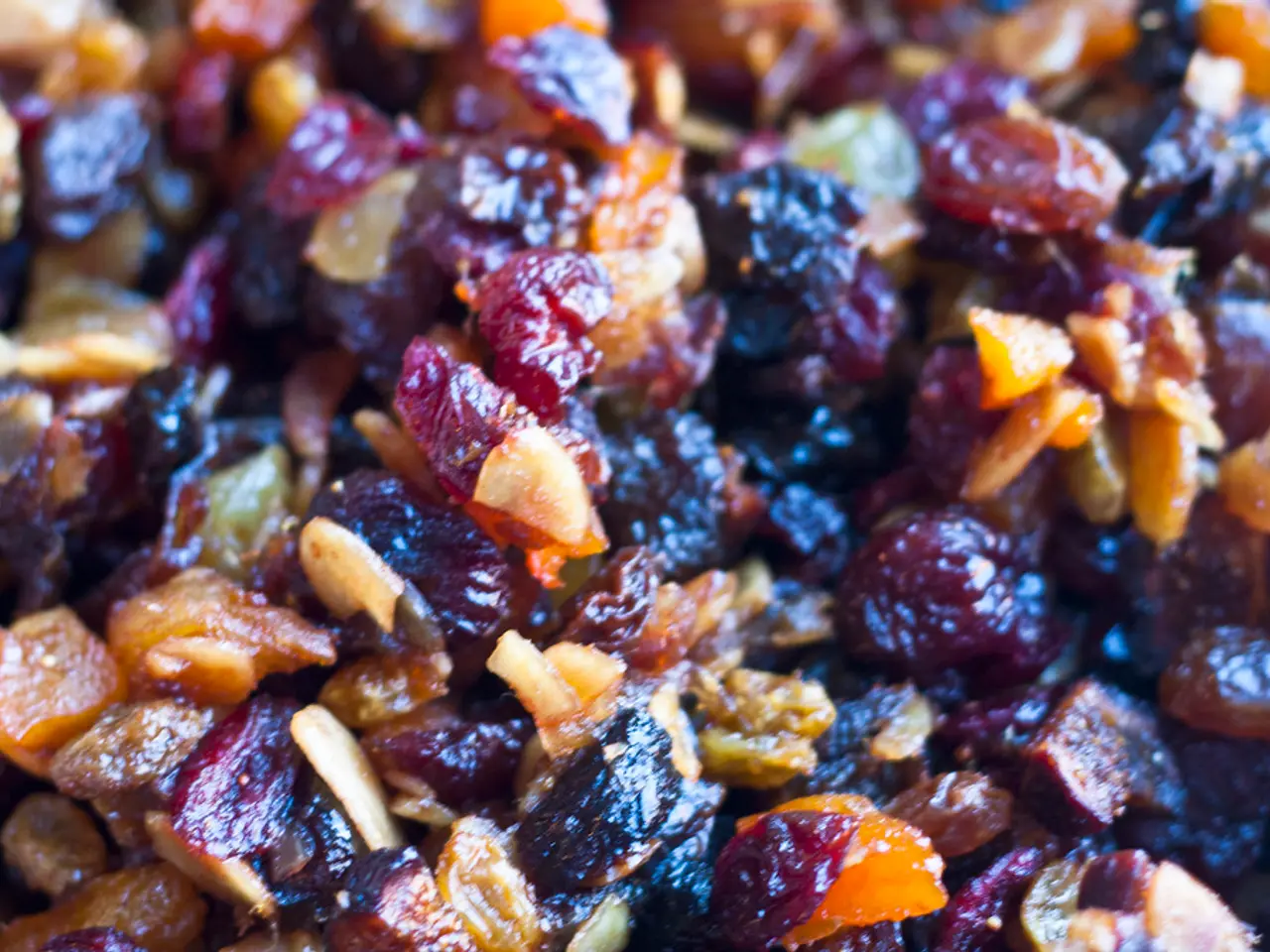Foods with the Greatest Probiotic Count
Probiotics, often referred to as 'for life' in Greek, are live microorganisms that have beneficial effects on health when ingested in sufficient quantities. These beneficial microorganisms form a vital part of the gut microbiota, contributing to digestion, immunity, mental health, and vitamin production.
Fermented foods are a rich source of probiotics. The top natural probiotic foods, primarily fermented foods rich in beneficial bacteria that support gut health, include:
- Kimchi – A spicy Korean fermented cabbage dish, contains about 10 billion Colony-forming Units (CFUs) per 100g, and is rich in Lactobacillus bacteria.
- Sauerkraut – Fermented cabbage provides around 3 billion CFUs per cup, known for fiber and live probiotics to maintain gut balance.
- Kefir – A fermented dairy drink, contains approximately 500 billion CFUs per 250ml serving, and is beneficial for digestive health.
- Yogurt – Made by fermenting milk with Lactobacillus and Streptococcus species, it contains 3 billion CFUs per 250ml serving, widely recognized for probiotic benefits.
- Miso – A fermented soybean paste from Japan, rich in probiotics and nutrients, aids digestion and potentially reduces inflammation, with around 8 billion microorganism cells per 2 tablespoons due to its long fermentation process.
- Tempeh – A dense, fermented soybean cake packed with protein and probiotics, aids digestive enzymes and reduces gut inflammation, with around 1000 billion cells per 250ml serving.
- Natto – A sticky fermented soybean dish rich in probiotics and distinctive umami flavor, with up to 1000 billion cells per 250ml serving.
- Kombucha – A fermented tea beverage containing probiotics and antioxidants, provides 15 billion microorganism cells per 250ml serving.
- Pickled vegetables (e.g., pickled cucumber, beets, radish, carrots) – Naturally fermented in brine, these provide diverse probiotic bacteria and a crunchy, tangy taste.
- Idli and Dosa batter – Fermented rice and lentil batters from Indian cuisine, developing beneficial microbes that aid digestion.
Prebiotics, such as inulin and fructooligosaccharides, can encourage the growth of probiotic bacteria in fermentations, particularly when the fermentation ingredients are low in fibre. Eating probiotic foods is beneficial for maintaining and strengthening the balance of the gut microbiota.
It's worth noting that to be considered a probiotic, a product must contain at least 1 million live microorganisms per gram. For a significant impact on health, it is recommended that you consume at least 10 million live microorganisms per gram.
Some fermented foods, such as milk kefir, natto, kimchi, sauerkraut, miso, and yogurt, contain beneficial microorganisms in high concentrations. However, the concentration of microorganisms in fermented foods can vary depending on factors such as the length of fermentation, ingredients used, and storage conditions.
In addition to these foods, probiotic food supplements are available, containing an average of 10 billion live cells per capsule or tablet, with some more concentrated products containing up to 100 billion live cells per unit. Opt for a sufficient quantity of microorganisms (min 2.5 billion per dose) and a diversity of strains to ensure that the probiotics survive gastric transit and act effectively on your health.
Making your own homemade fermentations is a simple and accessible way of getting high-quality food at your fingertips, ensuring you consume probiotics in their most natural and potent form. Probiotics can help balance gut microbiota, support beneficial bacteria, benefit digestion, support the immune system, help in the production of certain vitamins, and influence mood and behavior.
- Science indicates that incorporating foods rich in probiotics, such as kimchi, sauerkraut, kefir, yogurt, miso, tempeh, and natto, into a health-and-wellness lifestyle can positively impact digestion, immunity, mental health, and vitamin production.
- Furthermore, food-and-drink choices like fermented pickled vegetables and homemade fermentations can provide diverse probiotic bacteria essential for maintaining and strengthening the balance of the gut microbiota, contributing to a holistic fitness-and-exercise routine.
- Nutritionists recommend consuming at least 10 million live microorganisms per gram for a significant health benefit, and they emphasize the importance of including prebiotics like inulin and fructooligosaccharides to encourage the growth of probiotic bacteria in these fermented foods.




